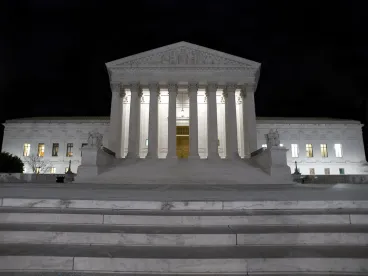On June 15, 2020, the U.S. Supreme Court decided three cases, holding that Title VII of the Civil Rights Act of 1964, 42 U.S.C. § 2000e-2, bars discrimination on the basis of sexual orientation and transgender identity.
In each of the three cases, an employee was fired shortly after revealing that he or she was homosexual or transgender. Each plaintiff brought suit under Title VII, alleging unlawful discrimination on the basis of sex. The Eleventh Circuit held that Title VII does not protect against discrimination in employment on the basis of sexual orientation, while the Second Circuit held that it did. The Sixth Circuit held that Title VII protects against discrimination on the basis of transgender identity.
In a 6-3 decision, the Supreme Court held that Title VII precludes discrimination in employment on the basis of either sexual orientation or transgender identity. Title VII, the Court reasoned, prohibits discrimination “because of” sex, and “it is impossible to discriminate against a person for being homosexual or transgender without discriminating against that individual based on sex.” This is so because “[a]n employer who fires an individual for being homosexual or transgender fires that person for traits or actions it would not have questioned in members of a different sex. Sex plays a necessary and undisguisable role in the decision.” More precisely, “[w]hen an employer fires an employee because she is homosexual or transgender, two causal factors may be in play—both the individual’s sex and something else (the sex to which the individual is attracted or with which the individual identifies).”
The Court rejected the employers’ argument that the common understanding of sex discrimination in 1964 was bias against women or men and did not encompass discrimination based on sexual orientation and gender identity. The Court also rejected the argument that “homosexuality and transgender status can’t be found on [the] list” of protected characteristics. “We agree that homosexuality and transgender status are distinct concepts from sex,” the Court wrote, but that made no difference because “discrimination on the basis of homosexuality or transgender status necessarily entails discrimination based on sex.” Likewise, the fact that bills proposing to add homosexuality or gender identity to Title VII had several times been introduced but not enacted did not inform what Title VII required in the first place. While acknowledging that “[t]hose who adopted the Civil Rights Act might not have anticipated their work would lead to this particular result,” the Court concluded that “the limits of the drafters’ imagination supply no reason to ignore the law’s demands.”
Justice Gorsuch delivered the opinion of the Court, in which Chief Justice Roberts and Justices Ginsburg, Breyer, Sotomayor, and Kagan joined. Justice Alito filed a dissenting opinion, joined by Justice Thomas. Justice Kavanaugh filed a dissenting opinion.







 />i
/>i
